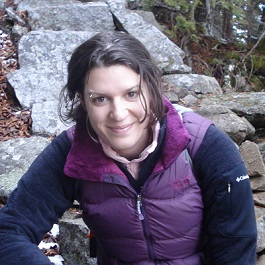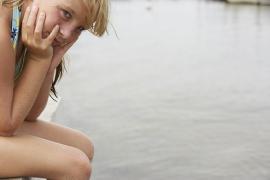The wonder of a child — it’s something we strive for in adulthood. Imagination, amazement, and the simple appreciation for life’s little treasures: the gold spray of sunlight through a window, or the taste of cool rain on your tongue. Kids are accustomed to using their senses to experience life. They look, touch, smell, and even taste their way through the world. This natural inclination toward mindfulness makes teaching kids to meditate easier than we thought. In fact, it’s a no-brainer.
Experts are now incorporating meditation and mindfulness practices into the learning process, and schools across the country have begun adding meditation to their curriculum with positive results.
But what about camps?
When it comes to camp, meditation is an activity that benefits everyone. Counselors and other staff can create a more positive environment by trading timeouts and typical tactics for punishing misbehavior for a more progressive form of behavioral modification — meditation.
How Busy Campers Benefit from Meditation Practice
1. Meditation Helps Busy Brains Focus
Meditation is an exercise just like any other, and with practice we can train our chaotic brains to become calm. Science proves meditation has a positive effect on our brains and is a helpful technique for relieving anxiety and stress and promoting better sleep. Children who have trouble focusing or who become anxious, homesick, or frustrated can benefit from meditation. It’s a practice they can use throughout their lives, so why not teach them the basics early on? Camp is a great place to learn new skills while making memories and forging friendships.
2. Meditation Fosters Self-Esteem and Emotional Balance
Meditation is a means to self-soothe. As we sit in stillness, we notice our breathing and connect to ourselves by purposely turning away from external noise and distractions. This important ritual teaches kids about self-care and self-respect, and it ultimately aids emotional balance.
3. Meditation Relieves Anxiety and Stress
Meditation puts a positive spin on the traditional time out. It is neither a punishment nor a time to reflect on misbehavior. Instead, meditation encourages kids to pause, breathe, and simply notice the sensations in their bodies, allowing children to access their natural rhythm of self-awareness and mindfulness. Kids learn that tight fists and tense muscles are signs of stress. And when their brains become calm, their bodies follow.
How to Make Meditation a Part of Camp Activities
1. Seated Meditation
Sitting still is a struggle for some kids, so adding meditation to the equation might seem impossible, but practice can train even the most active campers to master meditation — for at least a few minutes. Let kids choose a posture — a cross-legged pose or anything comfortable. Encourage them to relax, be still, and take deep, long breaths. The goal here is to begin with short sessions and build up to longer, more focused sessions.
2. Walking Meditation
Walking meditation incorporates nature. Like other forms of meditation, it invites kids to tune in to the sensations of their bodies. How does the grass feel against their skin? How does their stride change as the terrain becomes rough or rocky? The goal here is mindfulness, and connecting with nature can be a wonderfully grounding experience.
3. Guided Meditation
There are many ways to teach guided meditation to kids. In our technology-entrenched world, you should find many great options via YouTube videos, MP3 recordings and online tutorials. Voice narration is soothing and may even offer gentle music or nature sounds to enhance the experience. This type of meditation may be easiest for kids who are fidgety or have trouble meditating without the aid of a narrator.
Whatever type of meditation you choose, make the process fun and pressure-free for campers. When busy minds begin to wander, encourage kids to notice their thoughts without judgment or shame, and simply bring their minds back to a place of calm focus. Experiment with meditation mats and cushions, or allow kids to make their own. Meditation is an excellent tool kids can use to become more focused, positive, and peaceful throughout their lives. Camp is a great place to begin the journey inward!

Laurie Palagyi is the executive director of the West End House Girls Camp (WEHGC). Laurie believes in the power of camp to change lives and is passionate about creating innovative outdoor experiences where all kids can flourish and be empowered. To this end, Laurie enjoys helping camp and recreation professionals learn how to grow and market in efficient and effective ways. She can be reached at [email protected].
The views and opinions expressed by contributors are their own and do not necessarily reflect the views of the American Camp Association or ACA employees.



